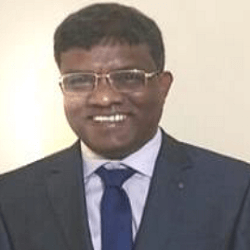
Gobinda Majhi
NIMHANS, IndiaTitle: Felt needs of the caregivers for the home based care for their family members with severe mental illnesses
Abstract
Background: Home based care for persons with severe mental illness is a family focused approach and addresses the caregiver’s responsibility. It is cost effective compared to the inpatient hospital settings, and it also allows the patients to stay with families in their communities while treatment is going on. In this context, this study aimed to explore the barrier to access mental health services and the caregivers’ felt needs for home based care for their family members with severe mental illness.
Methods: This study adopted a cross sectional descriptive design with 60 caregivers of family members with severe mental illnesses. Quantitative data were collected through a semi structured interview schedule prepared and validated for this study, and the severity of illness was measured using the Clinical Global Impression Scale.
Results: Caregivers faced difficulty in traveling along with their family members to the hospital for treatment (76.7%), accessibility issues (65%), and problems in mobilizing the patient to the hospital (54%). The majority of the caregivers (75%) preferred home based care to manage the illness of the patient, with a focus on pharmacotherapy (83.3%), and the patient considered there should be appropriate training at home (63.3%).
Conclusion: The majority of the caregivers felt the need for home based care with a preference for both pharmacotherapy and self care for their family members with severe mental illnesses.
Keywords: Barriers, caregivers, felt needs, home based care, institutional care, mental illness
Biography
Gobinda Majhi is presently working as an Associate Professor in the Department of Psychiatric Social Work at NIMHANS, Bengaluru, Karnataka, India. He has extensive experience working with adult psychiatry, especially schizophrenia and bipolar affective disorder. He has immensely contributed to the field of psychiatric rehabilitation and helped disabled people to learn the social skills needed to live in a community with optimum professional support. He has been constantly taking the initiative in reintegrative services with families of mentally ill people. Also, he has been privileged to work with tribal people and published a few articles.

